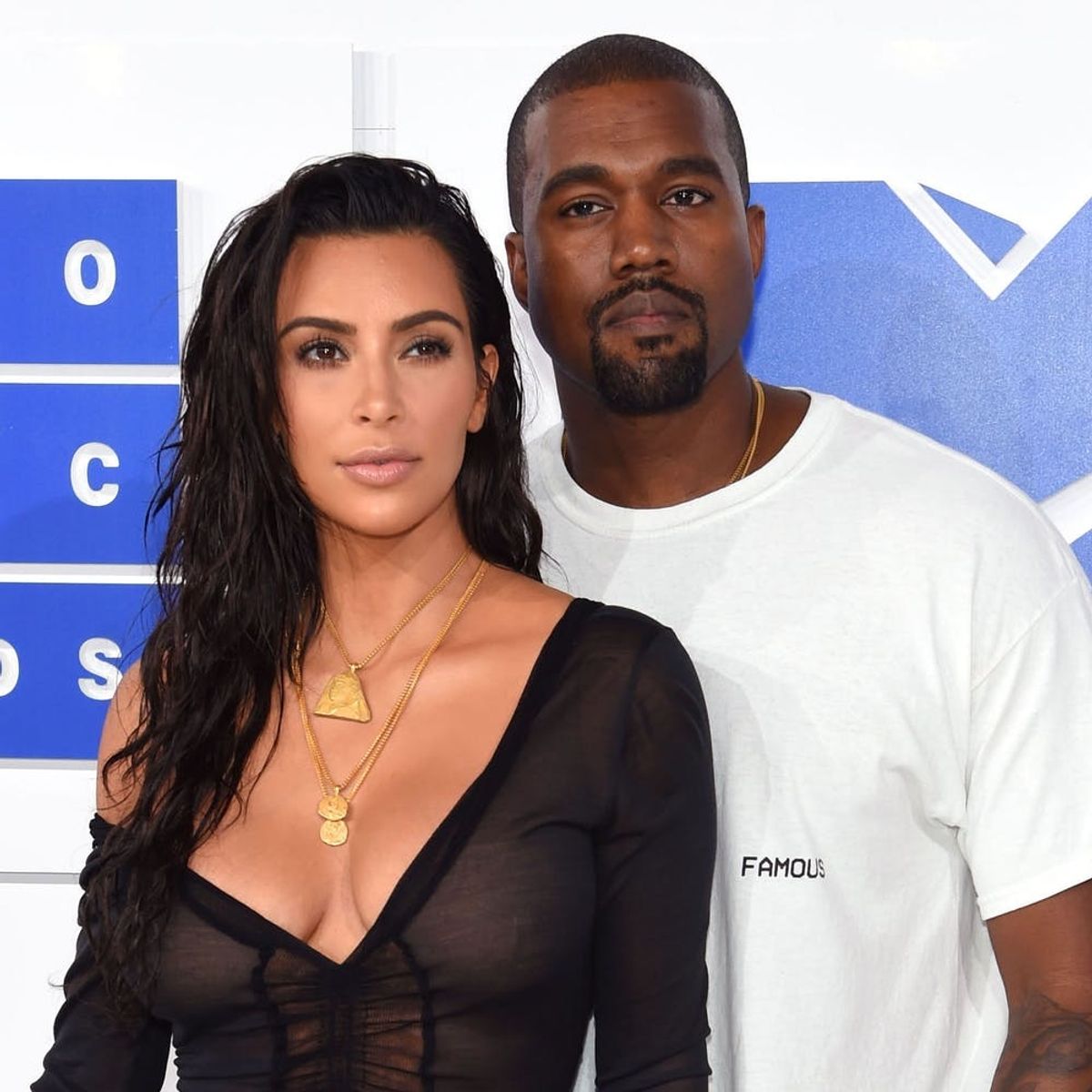Mental health isn’t a joke.
Why Kim Kardashian’s Remarks on Kanye’s Mental Health Are Spot On


In case you missed it, Kanye West recently returned to Twitter after a year-long silence, tweet-storming an abstract barrage of content — sometimes up to 20 tweets in one hour — about his Yeezy empire, plans for new music releases this summer, and, most recently, his political views. Things escalated yesterday morning after the 40-year-old rapper shared a photo of a signed “Make America Great Again” baseball hat, which was quickly met with backlash from his followers. Quick to defend himself, West shared his feelings about President Trump, likening him to a brother who shares “dragon energy.” But what started as a political stir escalated into speculation about West’s mental health, a conversation to which wife Kim Kardashian West gave a spot-on reply.
You don't have to agree with trump but the mob can't make me not love him. We are both dragon energy. He is my brother. I love everyone. I don't agree with everything anyone does. That's what makes us individuals. And we have the right to independent thought.
— KANYE WEST (@kanyewest) April 25, 2018
Of course, Kanye faced backlash for using his influential platform to promote Trump, whose policies are known to be harmful to marginalized communities like immigrants and people of color. Fellow artist John Legend text messaged West with concern and encouraged him to rethink his public support of Trump, while plenty of followers voiced their own concern.
While Kanye’s known for being an unpredictable free-thinker, and his stream-of-consciousness-style communication is enough to elicit eye rolls an addition to genuine concern, this week’s tweet-storm prompted the media and West’s Twitter followers to quickly demonize him and make bold, uninformed claims about mental illnesses like bipolar disorder. Some outlets even speculated that Kanye’s tweets were the result of an opioid addiction.
Kim quickly came to the rescue, defending Kanye on her own Twitter feed. “To the media trying to demonize my husband let me just say this… your commentary on Kanye being erratic & his tweets being disturbing is actually scary,” she tweeted yesterday. “So quick to label him as having mental health issues for just being himself when he has always been expressive is not fair.”
Chance the Rapper, a fellow Chicagoan, also spoke up on Twitter: “Talked to him two days ago. He’s in a great space and not affected by folk tryna question his mental or physical health. Same Ye from the Vmas, same Ye from the telethon.”
Mental Health is no joke and the media needs to stop spitting that out so casually. Bottom line
— Kim Kardashian West (@KimKardashian) April 25, 2018
While it’s fair to say that some of Kanye’s tweet content may have been a little controversial and even tone-deaf, Kim’s right about one thing: Jumping to conclusions about someone’s mental health is not just unfair. Speculating — and worse, joking — about the state of someone’s mental health based on their online behavior is insensitive and potentially dangerous to those actually suffering from diagnosed or undiagnosed mental illness.
Unpredictable behavior and outbursts may seem like signs of instability. And West, who was hospitalized in 2016 for exhaustion and sleep deprivation, is clearly a human being with human fragilities. But it’s never been publicly confirmed that he suffers from mental illness, and to surmise as such reduces something as nuanced, complicated, and personal as mental illness into something as simple (and irrelevant) as one’s political views or communication style. It also perpetuates preexisting stigmas about mental health issues, such as the idea that all sufferers of mental illness are erratic or all sufferers of mental illness have a particular political view — both of which simply aren’t true.
Dr. Allen Frances, former chairman of psychiatry at Duke University and chairman of the DSM-IV Task Force, who creates official psychiatric diagnoses, has written about the media’s portrayal of President Trump as mentally ill. Such accusations, he says, are not only reckless but wholly inappropriate.
“I find this careless, and politically motivated, use of Personality Disorder Diagnoses inappropriate, inaccurate, and troubling. We must get out of the facile habit of medicalizing all human behaviors that are troubling or distasteful,” he wrote for Huffington Post in 2016. “Trivializing the concept of mental disorder, by so loosely applying it, leads to our current rampant over-diagnosis and over-treatment of many people who are just different, not diseased (think the many who are mislabeled with Autism, ADHD, Posttraumatic Stress Disorder).
Dr. Susan Molchan, MD, a psychiatrist in Washington DC, believes by perpetuating negative stereotypes, speculation of mental illness can prevent people from asking for help, which can be dangerous.
“Mental illness causes serious distress and suffering to a lot of people and their families.,” she wrote for Health News Review. “It prevents them from living their lives to the fullest, and for too many, leads to ending their lives. And a pervasive stigma attached to mental illness keeps too many from seeking the help they need.”
Let’s leave the diagnoses to qualified professionals from here on out.
What are your thoughts on Kanye’s tweets? Tell us @BritandCo!
(Photo by Jamie McCarthy/Getty)

















